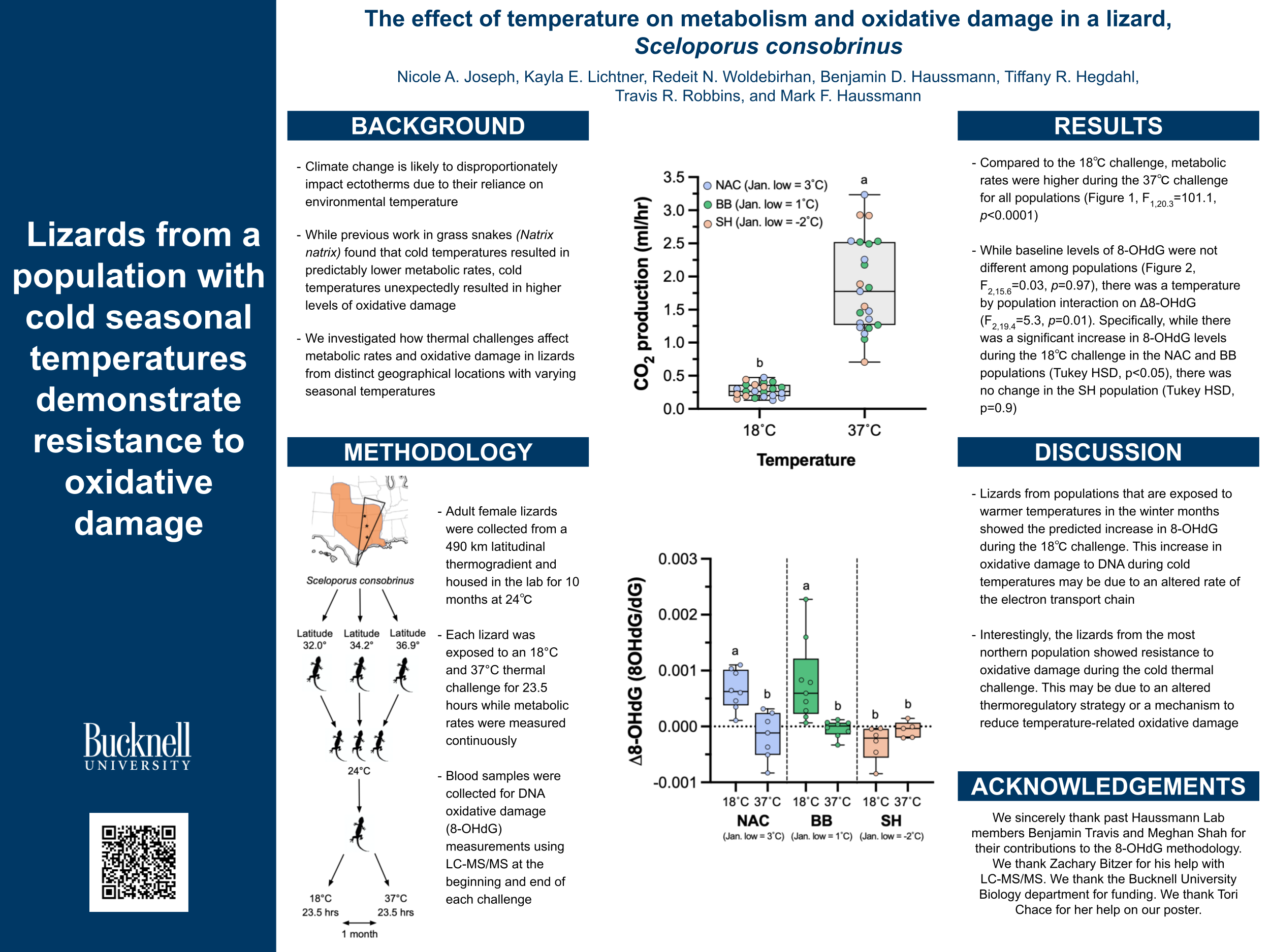
The effect of temperature on metabolism and oxidative damage in a lizard, Sceloporus consobrinus
Author:
Nicole Joseph ’25Co-Authors:
Kayla E. Lichtner, Redeit N. Woldebirhan, Benjamin D. Haussmann, Tiffany R. Hegdahl, Travis R. Robbins, Mark F. HaussmannFaculty Mentor(s):
Mark Haussmann, BiologyFunding Source:
Biology DepartmentAbstract
Ectotherm metabolic rates positively scale with temperature. As metabolism increases, mitochondria produce more reactive oxygen species, consequently increasing oxidative damage to biomolecules such as DNA. While a recent study in ectotherms produced the expected positive relationship between temperature and metabolism, it also revealed a surprising inverse relationship between metabolic rate and oxidative damage. Our study investigates the effect of temperature manipulation on metabolism and oxidative damage in three geographically distinct populations of Sceloporus consobrinus across a latitudinal thermal gradient. Adult female lizards from each population were collected and exposed to two separate 23.5 hour temperature treatments in the lab: 18°C and 37°C. Metabolic rates were measured at each temperature, and blood samples were collected before and after each temperature exposure. Following DNA extraction and digestion, the oxidative damage biomarker 8-hydroxy-2′-deoxyguanosine (8-OHdG) was quantified for each individual using liquid chromatography with tandem mass spectrometry. As expected, our findings show that metabolic rates are higher at warmer temperatures. Further, while we did not see a change in 8-OHdG levels after the 37°C treatment, the 18°C challenge resulted in an increase in 8-OHdG levels in two of the three populations. Interestingly, lizards from the northernmost population showed resistance to oxidative damage during the cold thermal challenge. This may be due to an altered thermoregulatory strategy or a mechanism to reduce temperature-related oxidative damage. As climate change continues to amplify temperature extremes and may disproportionately impact ectotherms, it is important to understand the influence that temperature has on organismal performance.